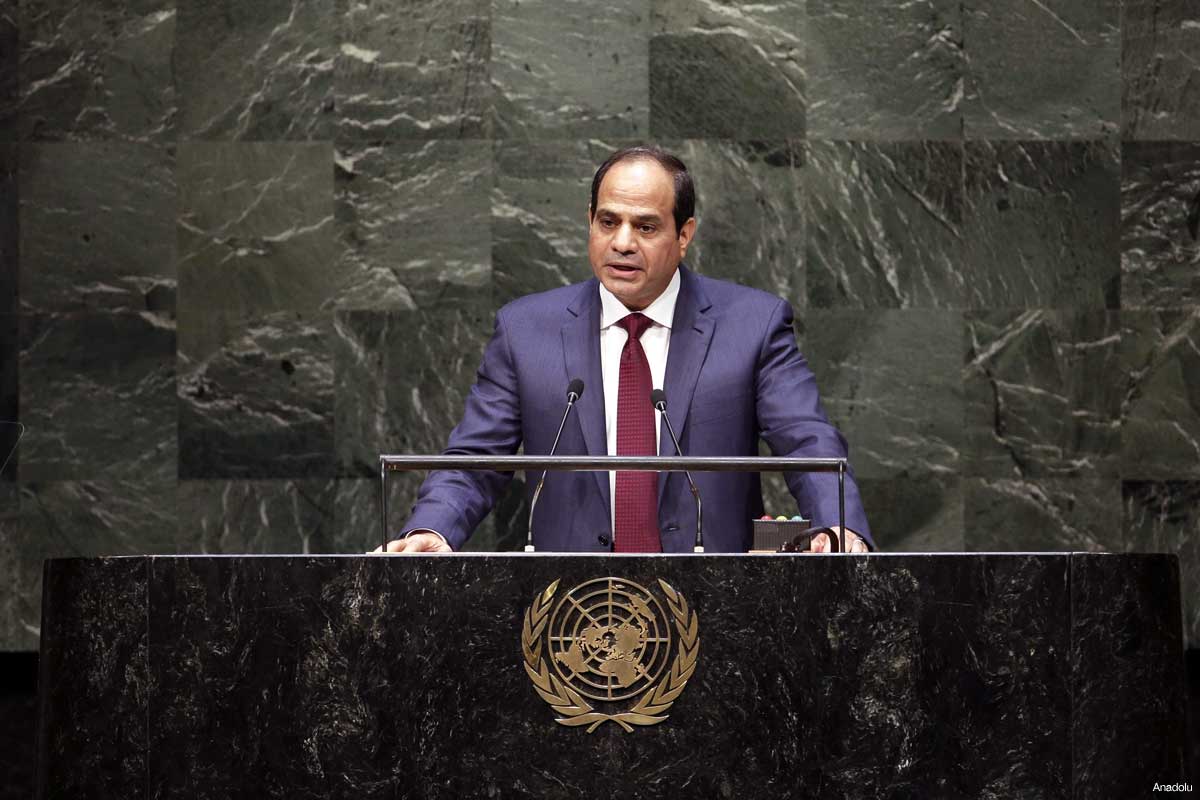 In the wake of delivering his speech at the UN General Assembly, the Egyptian coup leader Abdel Fatah Al-Sisi has said that the Muslim Brotherhood could join the government on condition of "rejecting violence".
In the wake of delivering his speech at the UN General Assembly, the Egyptian coup leader Abdel Fatah Al-Sisi has said that the Muslim Brotherhood could join the government on condition of "rejecting violence".
Last month, in what appeared to be a reference to the Muslims Brotherhood, Al-Sisi said any group could join the government as long as it is committed not to harm the country.
Responding to the calls, leaders of the Muslim Brotherhood insisted that there would be "no reconciliation without the return to the situation before the coup of July 3 and retribution for the martyrs".
Al-Sisi, in his speech at the UN, implicitly called the Muslim Brotherhood representative of "tyranny... violence and terrorism" and "extremism".
"As soon as the group ruled Egypt, it undermined the bases of democratic processes and the state of institutions," he said. "It sought to impose a state of polarisation in order to divide the unity of the Egyptians."
He said that Egypt started to suffer since the 1920s, "when a group started to spread its poisons under a religious cover aiming to control the country based on armed violence and terrorism".
Ashraf Abdul Ghaffar, senior leader of the Muslim Brotherhood, described Al-Sisi's "aggressive" language about his group as "baseless". He said: "It is unacceptable to put our hands in the hands of a killer like Al-Sisi."
"Al-Sisi wanted to draw an image of himself at the UN General Assembly, that he adopts a reconciliatory and democratic approach in Egypt, as well as he respects human rights," Abdul Ghaffar said. "However, all this is false."
Meanwhile, Saad Fayyad, the leader of the Salafi Front, described Al-Sisi's speech as a "media show" in order to cover-up the "bad" situation in Egypt.



